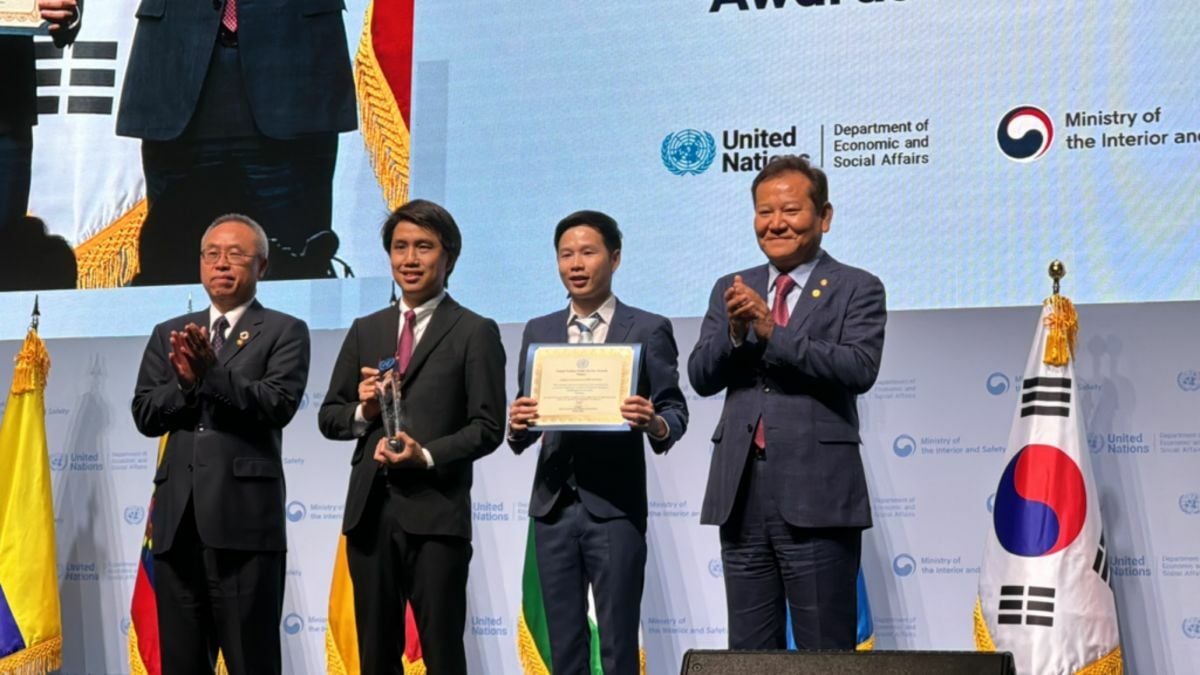Thai team wins UN award for Covid-19 detection via wastewater

A research team from Chulalongkorn University clinched a United Nations Public Service Award (UNPSA) for Innovation in Public Institutions. This UN award was given for their work titled Academic Insight into Action for Pandemic Response during a recent ceremony in Seoul, South Korea.
This award-winning study addresses the UN Sustainable Development Goals on health and well-being as well as clean water management. The project, spearheaded by Jatuwat Sangsanont from the Faculty of Science’s Department of Environmental Science, leverages wastewater analysis for the early detection of disease outbreaks.
Jatuwat explained that the research was driven by the Covid-19 pandemic, aiming to harness academic knowledge to create innovations that enable faster and more efficient responses to disease outbreaks. The system uses wastewater measurement data to aid decision-making and provide early warnings.
Focusing on wastewater-based epidemiology (WBE) methods, the team collected samples from the Bangkok Department of Drainage and Sewerage (DSS). Their findings revealed that Covid could be detected in wastewater up to two weeks before an outbreak becomes apparent.
Further research extended these findings beyond Bangkok, suggesting that rapid and efficient disease prevention measures could be implemented if authorities were alerted using this data. Jatuwat considers this approach to be more accurate in disease spread monitoring.
“Typically, monitoring disease outbreaks relies on hospital admissions. This method has limitations if patients do not seek hospital treatment. The WBE approach enables more accurate disease spread monitoring and faster decision-making to curb outbreaks.”
Collaborative effort
The research is a collaborative effort involving Chulalongkorn University’s Department of Environmental Science and the Centre of Excellence in Clinical Virology, as well as the Chulabhorn Research Institute, King Mongkut’s University of Technology Thonburi, Walailak University, and various government agencies.
Jatuwat highlighted that the technique could also be applied to other illnesses, such as influenza, gastroenteritis, and monkeypox. This method not only reduces the cost of tracking epidemics but also aids in decision-making and resource allocation within public health agencies.
Moreover, the technique can track changes in viral strains and illness outbreaks, aiding vaccine development to prevent further epidemics. It can even detect drugs in wastewater, helping to control the spread of illicit substances. The UNPSA Awards, established by the UN Economic and Social Council, serve as international recognition for excellence in public service.
Jatuwat considers this breakthrough to be an innovative approach which could revolutionise how we respond to pandemics and other public health threats. He emphasises the potential impact of their research on future public health strategies.
The success of this research underscores the importance of interdisciplinary collaboration and the application of academic insights to real-world problems, offering a promising blueprint for managing public health crises more effectively, reported Bangkok Post.
Latest Thailand News
Follow The Thaiger on Google News:


























